第98章 Chapter 20(3)
No name,however,has been mentioned in the poet's family more frequently or with more affection than that of the Rev.J.D.W.Williams,Vicar of Bottisham in Cambridgeshire.The mutual acquaintance,which was made through Mr.Browning's brother-in-law,Mr.George Moulton-Barrett,was prepared by Mr.Williams'great love for his poems,of which he translated many into Latin and Greek;but I am convinced that Mr.Browning's delight in his friend's classical attainments was quite as great as his gratification in the tribute he himself derived from them.
His love of genius was a worship:and in this we must include his whole life.
Nor was it,as this feeling so often is,exclusively exercised upon the past.
I do not suppose his more eminent contemporaries ever quite knew how generous his enthusiasm for them had been,how free from any under-current of envy,or impulse to avoidable criticism.He could not endure even just censure of one whom he believed,or had believed to be great.
I have seen him wince under it,though no third person was present,and heard him answer,'Don't!don't!'as if physical pain were being inflicted on him.In the early days he would make his friend,M.de Monclar,draw for him from memory the likenesses of famous writers whom he had known in Paris;the sketches thus made of George Sand and Victor Hugo are still in the poet's family.
A still more striking and very touching incident refers to one of the winters,probably the second,which he spent in Paris.He was one day walking with little Pen,when Beranger came in sight,and he bade the child 'run up to'or 'run past that gentleman,and put his hand for a moment upon him.'This was a great man,he afterwards explained,and he wished his son to be able by-and-by to say that if he had not known,he had at all events touched him.
Scientific genius ranked with him only second to the poetical.
Mr.Browning's delicate professional sympathies justified some sensitiveness on his own account;but he was,I am convinced,as free from this quality as a man with a poet-nature could possibly be.It may seem hazardous to conjecture how serious criticism would have affected him.
Few men so much 'reviewed'have experienced so little.
He was by turns derided or ignored,enthusiastically praised,zealously analyzed and interpreted:but the independent judgment which could embrace at once the quality of his mind and its defects,is almost absent --has been so at all events during later years --from the volumes which have been written about him.I am convinced,nevertheless,that he would have accepted serious,even adverse criticism,if it had borne the impress of unbiassed thought and genuine sincerity.
It could not be otherwise with one in whom the power of reverence was so strongly marked.
He asked but one thing of his reviewers,as he asked but one thing of his larger public.The first demand is indicated in a letter to Mrs.Frank Hill,of January 31,1884.
Dear Mrs.Hill,--Could you befriend me?The 'Century'prints a little insignificance of mine --an impromptu sonnet --but prints it CORRECTLY.The 'Pall Mall'pleases to extract it --and produces what I enclose:one line left out,and a note of admiration (!)turned into an I,and a superfluous 'the'stuck in --all these blunders with the correctly printed text before it!
So does the charge of unintelligibility attach itself to your poor friend --who can kick nobody.
Robert Browning.
The carelessness often shown in the most friendly quotation could hardly be absent from that which was intended to support a hostile view;and the only injustice of which he ever complained,was what he spoke of as falsely condemning him out of his own mouth.
He used to say:'If a critic declares that any poem of mine is unintelligible,the reader may go to it and judge for himself;but,if it is made to appear unintelligible by a passage extracted from it and distorted by misprints,I have no redress.'He also failed to realize those conditions of thought,and still more of expression,which made him often on first reading difficult to understand;and as the younger generation of his admirers often deny those difficulties where they exist,as emphatically as their grandfathers proclaimed them where they did not,public opinion gave him little help in the matter.
The second (unspoken)request was in some sense an antithesis to the first.
Mr.Browning desired to be read accurately but not literally.
He deprecated the constant habit of reading him into his work;whether in search of the personal meaning of a given passage or poem,or in the light of a foregone conclusion as to what that meaning must be.
The latter process was that generally preferred,because the individual mind naturally seeks its own reflection in the poet's work,as it does in the facts of nature.It was stimulated by the investigations of the Browning Societies,and by the partial familiarity with his actual life which constantly supplied tempting,if untrustworthy clues.It grew out of the strong personal as well as literary interest which he inspired.
But the tendency to listen in his work for a single recurrent note always struck him as analogous to the inspection of a picture gallery with eyes blind to every colour but one;and the act of sympathy often involved in this mode of judgment was neutralized for him by the limitation of his genius which it presupposed.
His general objection to being identified with his works is set forth in 'At the Mermaid',and other poems of the same volume,in which it takes the form of a rather captious protest against inferring from the poet any habit or quality of the man;and where also,under the impulse of the dramatic mood,he enforces the lesson by saying more than he can possibly mean.